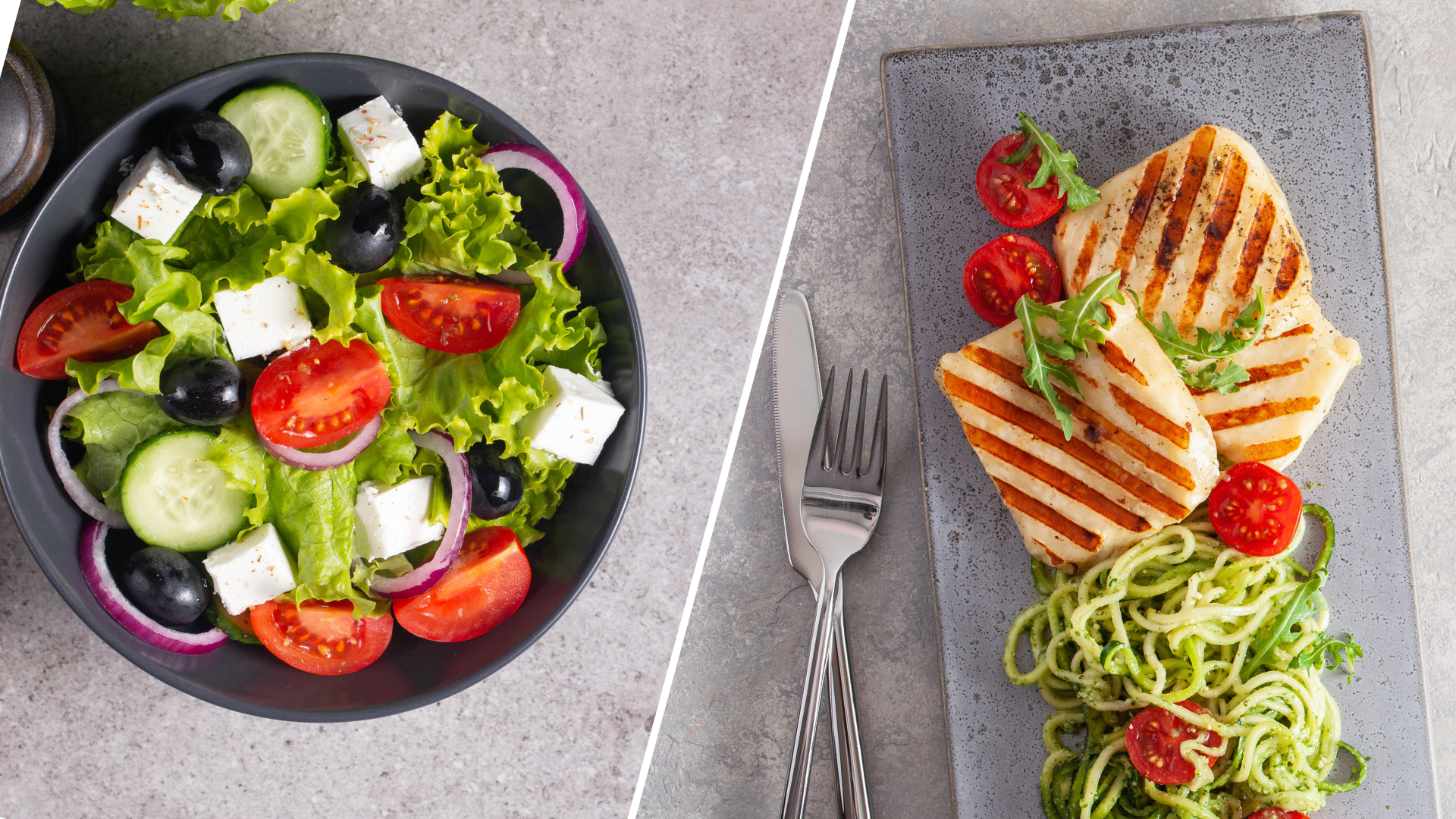Some of the links on this page are affiliate links, which means that Buzzy Kitchen earns commission from purchases made – at absolutely no extra cost to you. Thank you so much for supporting Buzzy Kitchen!
Similar in many ways but different in more, feta and halloumi cheese are both Mediterranean, slightly salty, and soft/semi-soft, alongside being a huge feature in many dishes around the world. But what’s the difference between feta and halloumi cheese, and can you use one in place of the other?
Why don’t we find out?
What is Feta Cheese?
Feta cheese is a brined cheese originating from Greece. Traditionally, it is made from either a mix of goat’s and sheep’s milk, or sheep’s milk on it’s own. It is known for having a crumbly texture and a tangy, salty flavour. It is commonly used in salads, Mediterranean dishes, and as a topping in various recipes.
What is Halloumi Cheese?
Halloumi cheese is a traditional cheese from Cyprus. It is typically made from a mixture of sheep’s and goat’s milk, and sometimes cow’s milk. Halloumi has a semi-firm, rubbery texture, and a unique characteristic of not melting when cooked. It is often grilled or fried and enjoyed as a savoury, salty dish.

Halloumi Cheese
Feta Cheese and Halloumi Cheese: Similarities
Although very similar, these two cheeses are still quite different. When substituting one for the other in recipes, it’s important to consider the differences in melting behaviour.
If a recipe specifically calls for the crumbled texture of feta, halloumi might not be the best replacement. However, if you want a cheese that can be grilled or pan-fried to add a savoury and slightly salty element to your dish, halloumi can be an excellent choice.
1: Salty Flavour
Both feta and halloumi have a slightly salty taste, which adds a savoury element to dishes.
2: Cheese Origin
Both cheeses originate from the Mediterranean region. Feta is Greek, while Halloumi comes from Cyprus.
3: Semi-Firm Texture
Feta and halloumi have a semi-firm texture, but they differ slightly in their firmness. Feta is crumbly, while Halloumi is rubberier and has a unique characteristic of being able to hold its shape when cooked.
4: Versatility in Cooking
Both feta and halloumi are versatile cheeses that can be used in various culinary applications. They are commonly used in salads, sandwiches, wraps, grilled dishes, and as appetizers.

What’s the Difference Between Feta and Halloumi Cheese?
In case you were wondering what might happen to your meal if you add feta cheese instead of the other, or vice versa, I’ve gone to the trouble of finding you. The hard way. Kitchen mistakes are my forte.
Anyway, here are the main (and very important) differences between feta and halloumi cheese:
1: Milk Type
Feta is traditionally made from sheep’s, sometimes with the addition of goat’s milk. Halloumi, on the other hand, is made from a blend of sheep’s and goat’s milk together, often with the addition of cow’s milk.
2: Aging Process
Feta is aged in brine, which contributes to its characteristic tangy flavour. Halloumi, on the other hand, is usually not aged for an extended period and is often enjoyed fresh or lightly brined.
3: Melting Behaviour
While feta does not melt well and retains its crumbly texture, halloumi has a high melting point and can be grilled or pan-fried, resulting in a crispy, golden-brown exterior and a soft, gooey interior.
4: Cooking Applications
While both cheeses are used in similar dishes, halloumi is more commonly used as a grilling cheese due to its unique melting properties. It can be grilled or fried and used as a standalone dish or added to salads and other recipes.
In conclusion, exploring the world of cheese can be a delightful journey filled with diverse flavours, textures, and stories from various cultures. Whether you savour the tangy goodness of feta or the grilling magic of halloumi, each cheese has its own charm.
So, next time you indulge in a cheese platter or whip up a cheesy delight, remember that there’s always something new to discover and enjoy in the world of cheese.
Happy cheesing! 🧀
You might also like these:
